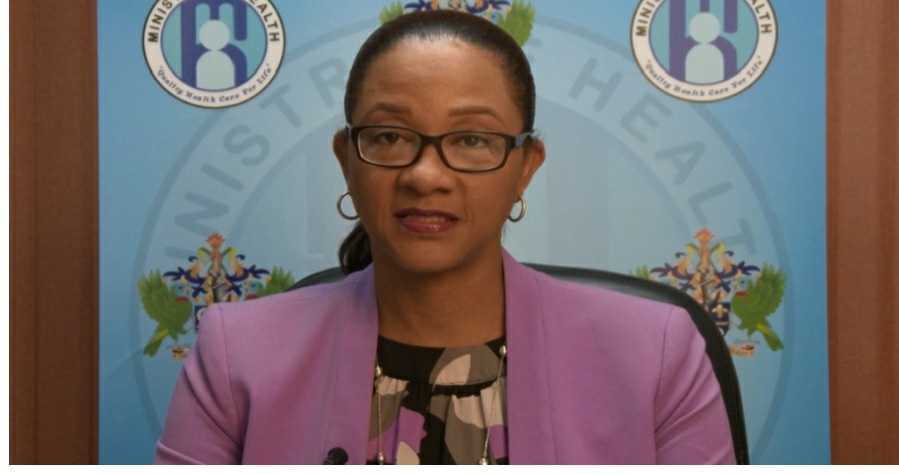
LOOP NEWS– St Lucia’s Chief Medical Officer Dr Sharon Belmar-George has announced that all of the island’s COVID-19 patients have now recovered.
“As of April 22, 2020, Saint Lucia has a total of 15 confirmed cases of COVID-19.
“To date, all of the positive cases of COVID-19 in Saint Lucia have recovered, with the remaining two cases who were in isolation receiving negative COVID-19 test results and since discharged from hospital.
This now places Saint Lucia at a 100 percent recovery of all COVID-19 cases. Among the 15 cases Saint Lucia recorded were individuals who fell within the category of high risk by virtue of some being elderly as well as living with chronic illness.
They too recovered well with no complications or needed critical care.
Laboratory testing for COVID-19 continues to be conducted both locally and with the support of the Caribbean Public Health Agency Laboratory.
Saint Lucia has modified its testing strategy by testing an increased number of samples from community respiratory clinics; this would assist us in the assessment of COVID-19 locally.
Saint Lucia continues on the partial shutdown and on a 10-hour curfew from 7 pm to 5 am We remain at a very critical position in the implementation of the national response to the COVID-19 threat.
Large scale public health and social measures have been implemented in an effort to break transmission of COVID-19 when in-country transmission was noted.
The public must note that many of these measures need to be sustained in an effort to achieve low COVID-19 levels in country.
Some of the measures that have been instituted include school closure, national zoning to manage population movement, the closure of non-essential businesses, travel restrictions, the partial national shutdown and instituting a 24-hour curfew.
The measures recommended to guide individual risks include the use of masks; the testing, isolation, treatment and care of sick persons and the adoption of hygiene and other infection prevention measures.
As seen in many of the more developed countries, even with an apparent decrease in the number of cases and the flattening of the curve, there have been periods of resurgence in their cases.
When measures are relaxed and persons become more socially engaged, this provides an opportunity for smaller epidemic waves which are characterized by low-level transmission.
It is with the benefit of this information we note the necessity of conducting a risk assessment to arrive at evidence-based approach in relaxing measures while ensuring the capacity to detect and manage a possible resurgence in cases moving forward.
Everyone is asked to note that as essential services are made available to the public the guidelines for social distancing need to be adhered to at all times in the interest of the health and safety of the public.
In the context of this, we all need to be reminded that the threat of COVID-19 still exists and will continue to be with us for a while. Some of the national protocols include: stay at home as much as possible, unless it is for food or medical purposes; avoid mass crowd events and social gatherings; practice social distancing and good personal hygiene.
The public is also advised against going to public places with flu-like symptoms including fever, coughing and sneezing.
When visiting the supermarket or public places, refrain from touching items unless you intend to purchase them. We need to adopt behavior patterns moving forward in this new COVID-19 environment.
Although, hardware stores are opened in an effort to facilitate household emergencies and increase water storage capacity, the public is reminded that we are still on national scale down. Only leave your house for essential goods.
Another recommendation which the public is asked to adhere to is the use of a face mask or scarf when going to public places such as the supermarkets.
The face mask or scarf may be used for source control by reducing potential exposure risk from infected persons during the “pre-symptomatic” period. This measure will support current efforts to protect the health and safety of our citizens.
However for the face masks to be effective in reducing infection, they must always be used as recommended.
We continue to advise the public to focus on the maintenance of standard recommendations to prevent the spread of infection.
These include:
- regular handwashing with soap and water or alcohol-based hand sanitizer where soap and water is not available.
- cover mouth and nose with disposable tissues or clothing when coughing and sneezing.
- avoid close contact with anyone showing symptoms of respiratory illness such as coughing and sneezing.
- seek medical attention and share your travel history with your health care provider if you have symptoms suggestive of respiratory illness either during or after travel.
The Department of Health and Wellness will continue providing regular updates on COVID-19.”
https://www.loopjamaica.com/content/all-st-lucias-covid-19-patients-have-now-recovered




